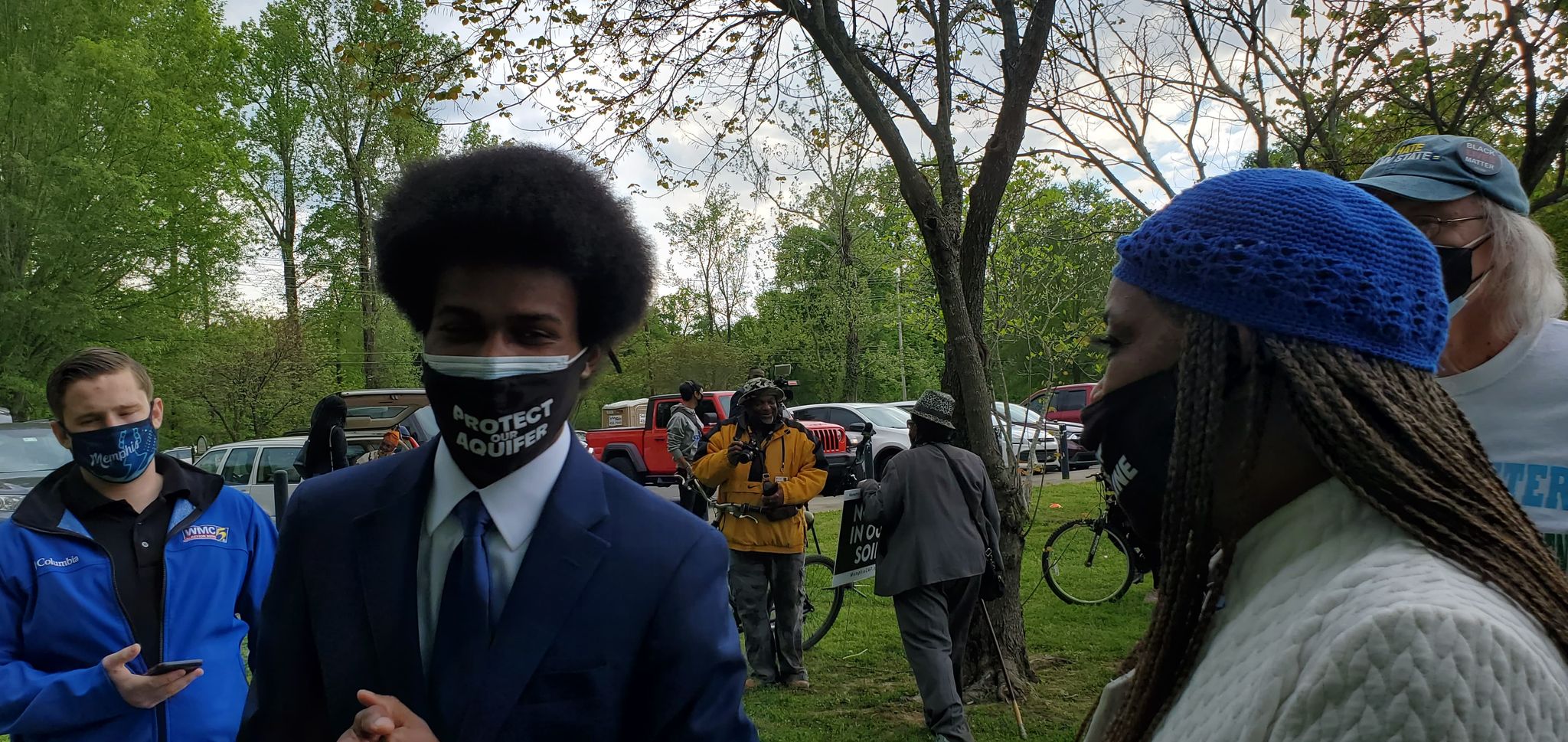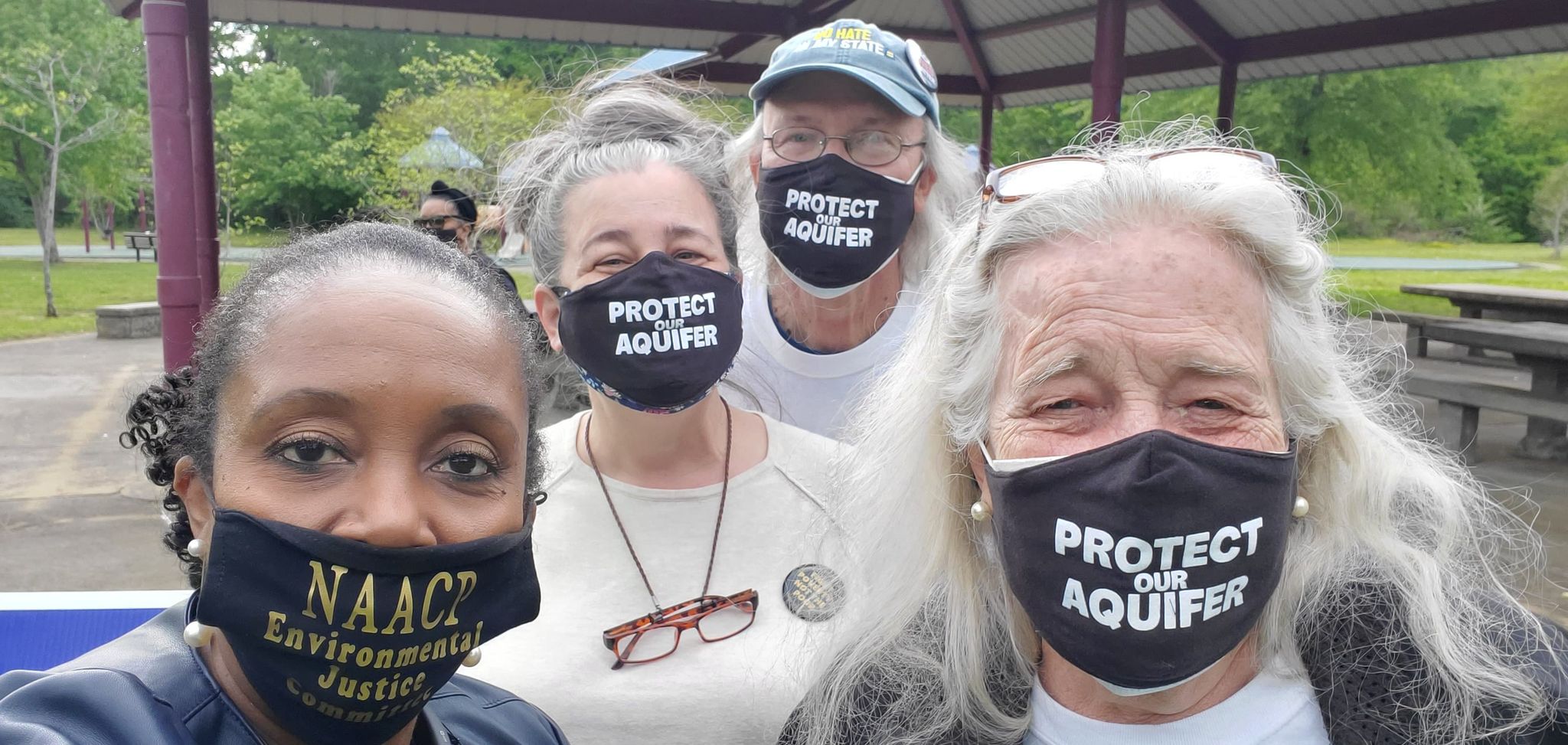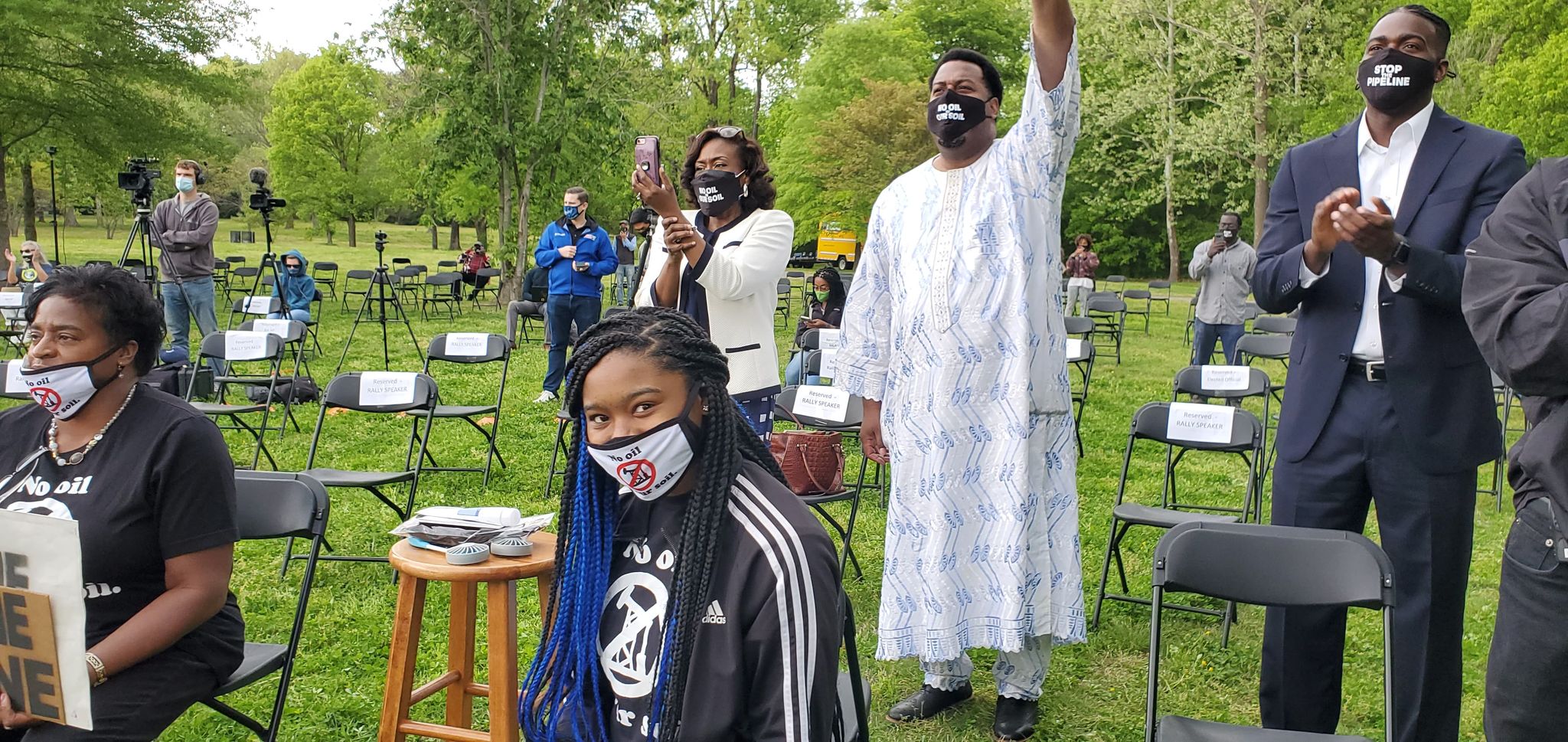The proposed Byhalia pipeline saga continues, with the Memphis City Council Public Works committee deciding last week to delay voting on an ordinance which would present a roadblock to the pipeline.
Pearl Eva Walker | May 11, 2021 | Climate Change, Energy Justice, TennesseeBrady Watson, former Civic Engagement Coordinator for the Southern Alliance for Clean Energy, also contributed to this blog post.
The saga of the proposed Byhalia crude oil pipeline continued in the Memphis City Council Public Works Committee last week, with the body ultimately deciding to delay the vote on a proposed ordinance that would present a roadblock to the pipeline.
The proposed ordinance that was scheduled for a third and final reading last week is a result of what has been identified by the Memphis City Council as a “regulatory gap” in the process for permitting and building pipelines. The ordinance, if passed, would give the City of Memphis additional regulatory authority over underground pipelines carrying crude oil and other toxic substances. The intention is to create an additional layer of protection for the Memphis Sand Aquifer, which is Memphis’ source of drinking water. Many Memphians are concerned that the proposed pipeline poses a risk to the drinking water supply as it would be routed through a wellhead protection zone, even as the pipeline presents minimal public benefits.
“It is bigger than Byhalia.”
Justin J. Pearson, a co-founder of Memphis Community Against the Pipeline (MCAP), asked the council to “choose justice” and pass the ordinance. “There is an opportunity to change our history. For over a hundred years our water has been unprotected and it is by grace that has not led to horrendous impacts but now due to what is going on with this pipeline, we realize there’s a regulatory gap that needs to be filled, and you all today have the opportunity to create justice to by filling that gap. It is bigger than the Byhalia Pipeline,” said Pearson. However, representatives from Plains All American (Plains), the company behind the pipeline, continue to maintain that because of the state and federal permits issued for the pipeline, Memphis has no legal ability to address the regulatory gap.

George Nolan from the Southern Environmental Law Center (SELC), who has been working with MCAP to draft the ordinance, shared the amendments to the ordinance, and referred to the changes as “narrowly tailored,” adding that the amendment “does what it needs to do, nothing more and nothing less.” Edits include a list of chemicals that this ordinance would apply to, exempting underground storage tanks, and clarifying that it does not apply to existing underground pipelines.
Nolan further pointed out that the ordinance only kicks in when a business wants to 1) add something new underground, 2) expand what’s underground, or 3) make a significant change in the capacity, and that “it is not intended to be against anything. It’s intended to be pro-water, pro-communities, and pro-business by protecting the community’s precious asset, the Memphis Sands Aquifer.”
Attempting to Close a Regulatory Gap
It’s a “strong ordinance,” explained Scott Crosby, an attorney with Burch, Porter & Johnson, “that affirms what the individual citizens are saying in this town. We live here, we depend upon our water. We have 11 breweries in town and they all came together and said, ‘We depend on this water. This is good business for us, that’s why we chose Memphis.’” He continued, “As the amended ordinance shows, there is a regulatory gap that exists, and I am proud that this City Council is looking to step into that breach and to close that regulatory gap and to realize that there is no federal preemption. In fact, the federal government, through the Army Corps of Engineers permit, suggested that the local government should step in, and in fact it all but stated that you should do that. The local groundwater is within y’alls control.”

When the floor shifted to representatives from Plains to make their case against the proposed ordinance, Brad Leone argued that the ordinance is flawed, and stated the company’s willingness to litigate it in court. Robert Spence, an attorney with Plains, raised many of the same concerns as Mr. Leone, citing potential legal issues with the ordinance, and negative impacts affecting the operation of refineries, the flow of petroleum, and other businesses. He used a dire example of residents having to line up at gas stations outside their neighborhoods, or even outside the city, to fill up their gas tanks. Saying the changes to the ordinance and attempts to fix issues actually exposed other problems, Mr. Spence said, “it’s like placing lipstick on a pig, but a pig is still a pig.” He also said the ordinance would “destroy jobs” in the Memphis area, which echoes the message in an aggressive Plains ad campaign claiming that the ordinance will cost Memphis jobs. Both men also mentioned concerns from the business community.
Plains Offers to Pause
Then, Mr. Brad with Plains stated the company was willing to pause the project for four weeks and dismiss pending eminent domain cases. He also said a delay on the vote would decrease the chance of litigation against the city.
Eric Brown, Vice President and General Manager of the Valero Memphis refinery, once again asked Council to vote no on the ordinance, saying it would prevent the refinery from doing its job and from expanding existing pipelines to the Memphis airport, and making safety updates. Ordinance co-sponsor Councilmember Dr. Jeff Warren pointed out that he wanted to accommodate businesses, and that he had in fact spoken with FedEx CEO Fred Smith, who said he was in favor of the ordinance and did not think it would negatively impact FedEx. He reiterated his desire for Council to pass the ordinance and then take time to amend if needed later.

City Council attorney Allan Wade explained his belief that the ordinance as it was last amended “would have unleashed hell on this body” because the business community was against it. He also mentioned the lack of his office’s involvement in drafting the ordinance, and that instead, the sponsors had relied on outside lawyers, which is not how things are normally done. Wade pointed out that one of the area’s existing pipelines to the east of Memphis is already traversing over a largely unprotected part of the aquifer, and no leaks have occurred yet. The ordinance also would exempt sewage lines, which he argued are responsible for more leaks than oil pipelines. Wade also spoke with representatives from MLGW, which will also make a presentation to their board on the pipeline.
City Attorney Allen Wade urges councilmembers to pass an ordinance prohibiting the Byhalia Pipeline specifically, rather than an ordinance that would have a far bigger scope
Mr. Wade’s main concern seemed to be with the review board that the ordinance would create to examine proposed projects which could impact the aquifer. He strongly urged the council NOT to give up its authority to a group of private citizens on a review board, saying that that had never happened before, and that council was elected to represent citizens. Instead, Wade urged Councilmembers to simply pass an ordinance prohibiting the Byhalia Pipeline specifically and litigating that, rather than dealing with the myriad consequences that might arise from an ordinance that would have a far bigger scope. His suggestion was that if the council wanted to pause, they should pause consideration until after the City budget is passed. He also later stated that Plains needed permission to cross city streets and that Mayor Strickland did not intend to give that permission, so it was highly unlikely that the project would move forward regardless of the ordinance being considered.
Taking that cue, Councilmember Frank Colvett made a motion to delay the vote until after the budget was passed, which should happen in June, meaning the ordinance will likely be taken back up at the July 6 meeting, citing many of the legal questions that still remained unanswered. Councilman Warren seconded the motion, with the understanding that Plains would indeed pause the project. Mr. Leone stated that they were planning to hold on eminent domain cases, but some active litigation may not be able to be paused. Councilman Smiley followed up by saying “a plan and an action is different. We need confirmation.” Mr. Leone confirmed that they would pause the project and eminent domain, and not resume until after Council met to discuss the ordinance again in July. Seeking to reassure community members who supported the ordinance and express concern about protecting the aquifer, Smiley offered that “justice delayed is not justice denied.” Councilmember Carlisle then asked that Plains send a memorandum of understanding stating that Plains would stay all legal proceedings and that council would not seek a vote on the ordinance. “I think that’s fair,” said Carlisle. Mr. Leone agreed, saying “the best thing we can do is put this in writing.” Councilman Martavius Jones also said he agreed to pause the ordinance, and cited concerns that he did not want to inflate the budget for litigation for the ordinance.
“Justice Delayed is Not Justice Denied.”
Finally, Plains agreed to discuss MOU items with the Council attorney. The ordinance will be held until the July 6 City Council meeting.
Stay tuned – SACE will provide updates at that time.